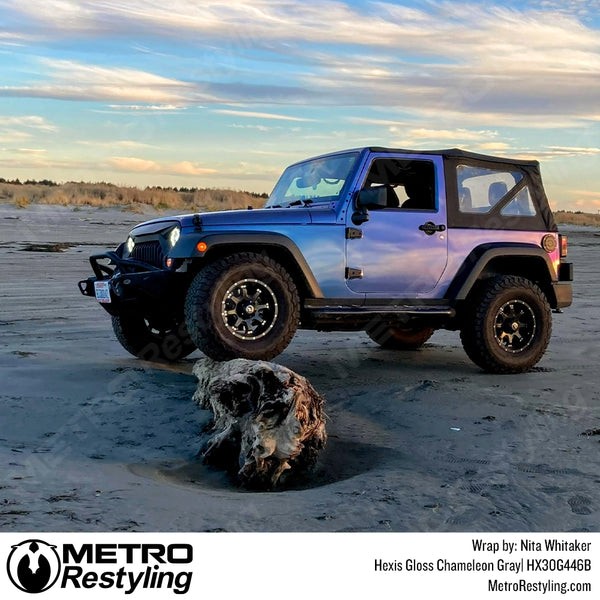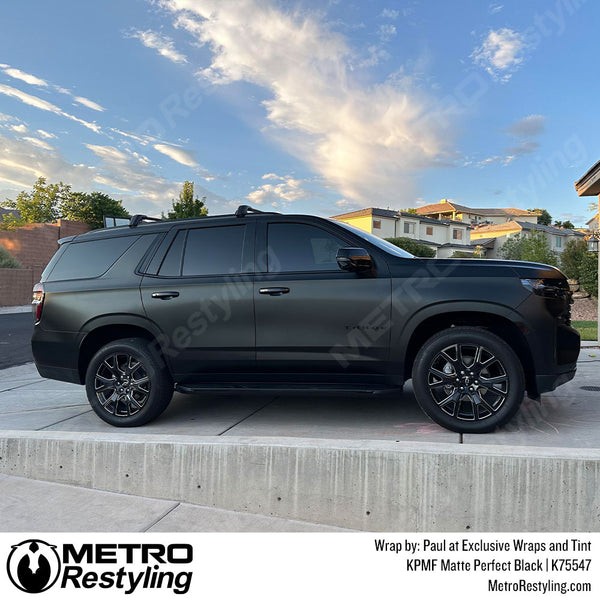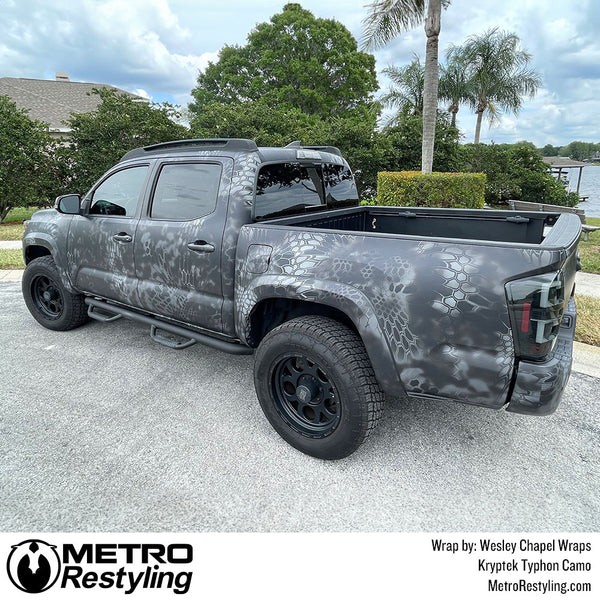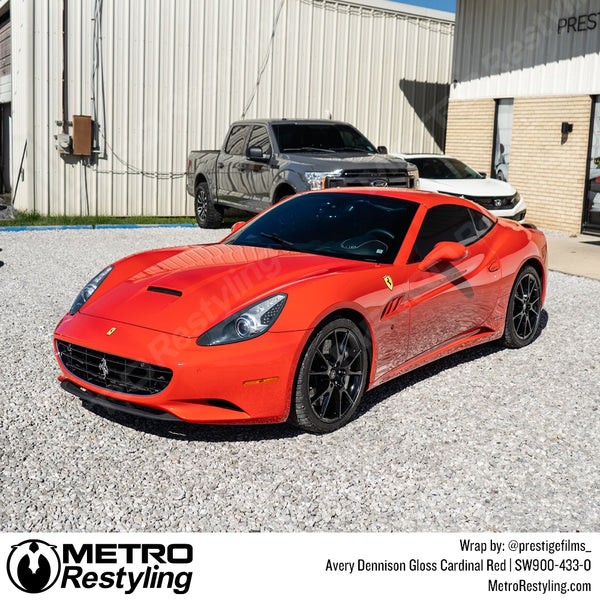How Long Does A Wrap On A Car Last? Car wraps provide an awesome way to personalize your vehicle, protect its original paint, and even advertise your business. CARS.EDU.VN is here to help you understand the lifespan of a car wrap and how to maximize it. From the quality of materials to environmental factors, we’ll cover everything you need to know to keep your wrap looking its best and explore vehicle aesthetics, vinyl protection and wrap durability.
1. Key Factors Influencing Car Wrap Longevity
Several factors play a significant role in determining how long your car wrap will last. Understanding these elements can help you make informed decisions about the type of wrap you choose and how to care for it.
1.1. Quality of the Wrapping Materials
The quality of the vinyl film used is the most crucial factor. High-quality cast vinyl films are superior to cheaper, calendered films. Cast vinyl offers better durability, conforms more effectively to vehicle contours, and resists fading and cracking over time.
Recommended Brands:
- 3M
- Avery Dennison
- Hexis
- KPMF
- Orafol
These brands are known for their premium quality and extended lifespans. Opting for these can significantly enhance the longevity of your car wrap.
Cast Vinyl vs. Calendered Vinyl: Cast vinyl is produced through a process that allows it to be thinner and more stable, making it ideal for complex curves and long-term applications. Calendered vinyl, on the other hand, is thicker and more prone to shrinking and cracking. For a detailed comparison, check out the resources available on CARS.EDU.VN to help you make the best choice for your needs.
1.2. Proper Wrap Maintenance
Regular maintenance is vital for extending the life of your car wrap. This includes:
- Regular Washing: Eliminates pollutants, dirt, and grime that can damage the vinyl over time.
- Gentle Cleaning Products: Avoid abrasive tools and harsh chemicals to maintain the wrap’s appearance and adhesion.
Maintenance Tips:
- Wash Frequency: Wash your car at least every two weeks, or more often if exposed to harsh conditions.
- Cleaning Solutions: Use pH-neutral cleaning products specifically designed for car wraps.
- Drying: Use a microfiber cloth to dry the wrap, preventing water spots and streaks.
1.3. Professional Wrap Installation
The installer’s expertise significantly impacts the wrap’s lifespan. Professionally installed wraps are less likely to peel, adhere better, and have fewer bubbles or imperfections. Ensure you choose experienced professionals for installation to maximize the longevity of your wrap.
Why Professional Installation Matters:
- Expertise: Professional installers have the knowledge and skills to apply the wrap correctly.
- Tools: They use specialized tools to ensure a smooth, bubble-free finish.
- Warranty: Many professional installers offer warranties on their work, providing peace of mind.
Looking for a trusted installer? CARS.EDU.VN can help you find top-rated car wrap shops in your area.
1.4. Impact of Sun Exposure
Prolonged exposure to UV light can accelerate the fading and degradation of vinyl wraps. UV radiation breaks down the chemical bonds in the vinyl, leading to brittleness and discoloration.
Mitigation Strategies:
- Parking in Shade: Reduces direct sun exposure.
- Car Covers: Provides additional protection when parking outdoors.
- UV Protectant Sprays: Applying these can help shield the wrap from UV damage.
1.5. Influence of Location and Environment
The local climate significantly influences the durability of your car wrap. Mild climates offer the best protection, allowing high-quality wraps from brands like 3M and Avery Dennison to last up to 12 years. However, extreme temperatures (hot, cold, or humid) can reduce this lifespan.
Climate-Specific Considerations:
- Hot Climates: High temperatures can cause the vinyl to expand and contract, leading to cracks and peeling.
- Cold Climates: Low temperatures can make the vinyl brittle, increasing the risk of damage.
For more detailed tips on preserving your vinyl wrap, consult the comprehensive guides available on CARS.EDU.VN.
2. Car Wrap Performance in Different Climates
The lifespan of a car wrap varies significantly depending on the climate. Let’s examine how different environmental conditions affect wrap durability.
2.1. Southern States: Hot and Sunny Conditions
In regions like Florida, Texas, and Arizona, intense sunlight and high temperatures can accelerate the breakdown of car wraps. The heat causes the vinyl to expand and contract, leading to cracking and peeling over time.
Strategies for Hot Climates:
- Regular Washing: Removes surface pollutants baked on by the sun.
- Wrap-Safe Wax: Adds a layer of protection against UV light.
- Shaded Parking: Reduces direct sun exposure.
- Car Covers: Provides additional defense when the car is parked.
- Avoid Extreme Heat: Park on lighter surfaces and avoid driving during the hottest parts of the day.
2.2. Northern and Midwestern States: Cold and Snowy Conditions
In colder regions like Michigan, Minnesota, and upstate New York, low temperatures can cause vinyl wraps to become brittle. While snow and ice do not directly harm the wrap, the glue can lose its effectiveness, making the wrap more prone to peeling.
Strategies for Cold Climates:
- Frequent Cleaning: Removes dirt, grime, and salt.
- Snow Removal: Clear snow before it freezes to prevent brittleness.
- Avoid Ice Scrapers: Use a soft brush or blower to avoid scratching the vinyl.
- Safe Residue Cleaning: Protect the wrap’s integrity by safely cleaning road salt and sand residue.
2.3. Coastal Regions: Salt and Humidity
Coastal areas present unique challenges due to salt spray and high humidity. Salt can corrode the vinyl, while humidity can weaken the adhesive.
Strategies for Coastal Climates:
- Frequent Washing: To remove salt buildup, wash your car more frequently.
- Protective Coatings: Use wraps with special coatings that provide an extra barrier against salt and moisture.
- Garage Storage: If possible, store your car in a garage to minimize exposure to the elements.
3. State-Specific Car Wrap Longevity
The lifespan of car wraps can vary significantly from state to state due to differing climate conditions and environmental factors.
3.1. Florida and Other Southern States
In states like Florida, car wraps may have a shorter lifespan due to high temperatures and intense sun exposure. UV radiation and heat-induced expansion and contraction of the vinyl material contribute to this reduced lifespan. You might expect a well-maintained wrap to last between 5 and 7 years in these conditions.
3.2. Midwestern States
In the Midwest, the flexibility of vinyl wraps can be affected by cold temperatures. While adhesives may lose some effectiveness, the wraps can still last several years with proper care. Regular cleaning and avoiding harsh scraping tools are essential. A typical lifespan in this region is 7 to 9 years.
3.3. California and Other Western States
California’s climate is generally more moderate compared to the extremes seen in the Southern and Midwestern states. However, certain areas can still experience high temperatures and strong sunlight, particularly in Southern California. With proper maintenance, car wraps in California can last between 7 and 10 years.
The table below illustrates how wrap lifespan may differ by state:
| State | Climate | Expected Lifespan | Key Challenges |
|---|---|---|---|
| Florida | Hot and Sunny | 5-7 years | UV Radiation, High Temperatures |
| Texas | Hot and Dry | 6-8 years | Intense Heat, Dust |
| California | Moderate | 7-10 years | Sun Exposure, Smog |
| Michigan | Cold and Snowy | 7-9 years | Cold Temperatures, Road Salt |
| New York | Cold and Humid | 6-8 years | Cold Temperatures, Humidity |
| Arizona | Desert | 5-7 years | Extreme Heat, UV Radiation |
| Washington | Temperate Rainy | 8-10 years | Moisture, Mild Sunlight |




This table provides a general guideline. Actual wrap lifespan can vary depending on material quality, maintenance practices, and specific local conditions.
4. Maximizing Vehicle Wrap Durability Across All Climates
Regardless of where you live, taking proactive steps can help extend the life of your car wrap.
4.1. Regular Maintenance
Consistent car washing prevents long-term damage from pollutants. Use soft towels and mild detergents to avoid tearing the wrap.
Maintenance Schedule:
- Weekly: Rinse the wrap with water to remove loose dirt and debris.
- Bi-Weekly: Wash the wrap with a pH-neutral cleaner and a soft sponge or microfiber cloth.
- Monthly: Inspect the wrap for any signs of damage, such as peeling or bubbling.
4.2. Protective Parking
Whenever possible, park your car in a garage or shaded area to shield it from harsh weather conditions, such as extreme sun or freezing temperatures.
Parking Tips:
- Garages: Provide the best protection from all types of weather.
- Shade: Trees, buildings, or carports can reduce direct sun exposure.
- Car Covers: Offer an additional layer of protection when parking outdoors is unavoidable.
4.3. Routine Inspections
Periodically check your wrap for any lifting, peeling, or bubbling. Early detection allows for quick repairs, preventing further degradation.
Inspection Checklist:
- Edges: Pay close attention to the edges of the wrap, as these are the most prone to lifting.
- Seams: Inspect the seams for any signs of separation or damage.
- Surface: Look for bubbles, cracks, or discoloration on the surface of the wrap.
5. Delving Deeper: The Science Behind Wrap Lifespan
Understanding the scientific principles that affect wrap durability can help you make even more informed decisions about wrap selection and maintenance.
5.1. UV Degradation
Ultraviolet radiation from the sun is a primary cause of wrap degradation. UV light breaks down the chemical bonds in the vinyl, causing it to become brittle and discolored.
Chemical Composition and UV Resistance:
- Polymeric Films: Offer better UV resistance compared to monomeric films.
- UV Absorbers: Some wraps include UV absorbers that help to block UV radiation.
- Protective Laminates: Applying a protective laminate can provide an additional layer of UV protection.
5.2. Thermal Expansion and Contraction
Extreme temperatures cause the vinyl to expand and contract, which can lead to cracking and peeling over time.
Material Properties and Thermal Stability:
- Coefficient of Thermal Expansion: Materials with a low coefficient of thermal expansion are less prone to damage from temperature changes.
- Adhesive Properties: High-quality adhesives maintain their bond even under extreme temperature fluctuations.
- Wrap Thickness: Thicker wraps are generally more resistant to thermal stress.
5.3. Chemical Exposure
Exposure to chemicals, such as road salt, acid rain, and harsh cleaning products, can damage the wrap.
Chemical Resistance:
- Protective Coatings: Wraps with protective coatings are more resistant to chemical damage.
- pH-Neutral Cleaners: Using pH-neutral cleaners helps to prevent chemical degradation.
- Regular Washing: Removes harmful chemicals before they can cause damage.
5.4. Mechanical Stress
Mechanical stress, such as impacts from road debris and improper cleaning techniques, can also reduce the lifespan of a car wrap.
Mechanical Durability:
- Impact Resistance: Some wraps are designed to be more resistant to impacts from road debris.
- Scratch Resistance: Using soft cloths and gentle cleaning techniques helps to prevent scratches.
- Proper Installation: Professional installation ensures that the wrap is properly adhered to the vehicle, reducing the risk of mechanical damage.
6. Advanced Techniques for Wrap Preservation
Beyond basic maintenance, several advanced techniques can further extend the life of your car wrap.
6.1. Ceramic Coatings
Applying a ceramic coating to your car wrap can provide an additional layer of protection against UV radiation, chemical exposure, and mechanical stress.
Benefits of Ceramic Coatings:
- Enhanced UV Protection: Ceramic coatings block UV radiation, preventing fading and discoloration.
- Chemical Resistance: They protect the wrap from damage caused by road salt, acid rain, and harsh cleaning products.
- Scratch Resistance: Ceramic coatings provide a hard, durable surface that is resistant to scratches and swirl marks.
- Hydrophobic Properties: They repel water and dirt, making the wrap easier to clean.
6.2. Paint Protection Film (PPF) Over Wrap
For maximum protection, consider applying paint protection film (PPF) over your car wrap. PPF is a clear, self-healing film that protects the wrap from scratches, impacts, and other types of damage.
Benefits of PPF:
- Superior Scratch Protection: PPF provides excellent protection against scratches and swirl marks.
- Impact Resistance: It helps to protect the wrap from damage caused by road debris and minor impacts.
- Self-Healing Properties: Some PPF films have self-healing properties, meaning that minor scratches will disappear over time.
- UV Protection: PPF also provides an additional layer of UV protection.
6.3. Professional Detailing
Regular professional detailing can help to keep your car wrap looking its best. Professional detailers have the knowledge, skills, and equipment to safely and effectively clean and protect your wrap.
Benefits of Professional Detailing:
- Safe Cleaning Techniques: Professional detailers use gentle cleaning techniques that won’t damage the wrap.
- Specialized Products: They use specialized cleaning and protection products designed for car wraps.
- Expert Inspection: Professional detailers can identify and address any potential issues before they become major problems.
7. The Role of Technology in Enhancing Wrap Durability
Advancements in materials science and manufacturing technology are continually improving the durability and longevity of car wraps.
7.1. Nanotechnology
Nanotechnology is being used to develop wraps with enhanced UV resistance, scratch resistance, and hydrophobic properties.
Applications of Nanotechnology:
- Nanocoatings: These coatings create a barrier that is resistant to UV radiation, chemicals, and scratches.
- Nanoparticles: Adding nanoparticles to the vinyl film can improve its strength and durability.
7.2. Self-Healing Films
Self-healing films use advanced polymer technology to repair minor scratches and swirl marks. These films can significantly extend the life of a car wrap by keeping it looking newer for longer.
How Self-Healing Films Work:
- Elastic Memory: The film has an elastic memory that allows it to return to its original shape after being scratched.
- Heat Activation: Some self-healing films require heat to activate the healing process.
- UV Activation: Other self-healing films are activated by UV light.
7.3. Digital Printing Technology
Advances in digital printing technology have made it possible to create car wraps with more vibrant colors, sharper details, and improved durability.
Benefits of Digital Printing:
- High-Resolution Images: Digital printing allows for the creation of wraps with high-resolution images and intricate designs.
- UV-Resistant Inks: UV-resistant inks prevent fading and discoloration.
- Customization: Digital printing makes it easy to create custom car wraps that reflect your personal style or promote your business.
8. Economic Considerations of Car Wraps
When considering a car wrap, it’s important to weigh the costs against the benefits. A well-maintained wrap can offer both aesthetic and economic advantages.
8.1. Cost vs. Benefit Analysis
The cost of a car wrap can vary depending on the size of the vehicle, the quality of the materials, and the complexity of the design. However, a car wrap can be a cost-effective alternative to a new paint job.
Cost Factors:
- Material Quality: High-quality vinyl films are more expensive but offer better durability.
- Installation: Professional installation is more expensive than DIY installation but ensures a better result.
- Design Complexity: Complex designs and custom graphics will increase the cost.
Benefits:
- Protection: A car wrap protects the original paint from scratches, UV radiation, and other damage.
- Aesthetics: It allows you to change the look of your car without a permanent paint job.
- Resale Value: A well-maintained wrap can increase the resale value of your car.
- Advertising: Car wraps can be used to advertise your business.
8.2. Long-Term Cost Savings
While the initial cost of a car wrap may seem high, it can save you money in the long run by protecting your car’s paint and preventing the need for expensive repairs.
Savings:
- Paint Protection: A car wrap protects the paint from scratches, chips, and fading, reducing the need for costly repairs.
- Resale Value: A well-maintained car wrap can increase the resale value of your car.
- Advertising: A car wrap can serve as a mobile billboard, generating leads and increasing brand awareness.
8.3. ROI on Commercial Wraps
For businesses, car wraps can be a highly effective advertising tool with a strong return on investment (ROI).
ROI Factors:
- Visibility: Car wraps provide high visibility, reaching a large audience.
- Cost-Effectiveness: Compared to other forms of advertising, car wraps are relatively inexpensive.
- Targeting: Car wraps can be targeted to specific geographic areas.
- Longevity: A well-maintained car wrap can last for several years, providing ongoing advertising exposure.
9. Choosing the Right Car Wrap Shop: Key Considerations
Selecting a reputable car wrap shop is crucial for ensuring a high-quality installation and maximizing the lifespan of your wrap.
9.1. Experience and Expertise
Look for a shop with experienced installers who have a proven track record of success. Check online reviews and ask for references to gauge the shop’s reputation.
Questions to Ask:
- How many years of experience do you have?
- What types of wraps do you specialize in?
- Can I see examples of your work?
- Do you offer a warranty on your installations?
9.2. Quality of Materials
Ensure that the shop uses high-quality vinyl films from reputable brands. Ask about the different types of materials they offer and their respective benefits.
Material Considerations:
- Cast vs. Calendered: Cast vinyl is more durable and conformable than calendered vinyl.
- Thickness: Thicker wraps offer better protection and durability.
- Finish: Choose a finish that suits your style and needs, such as gloss, matte, or satin.
9.3. Warranty and Customer Service
Choose a shop that offers a warranty on their installations and provides excellent customer service. A good warranty will protect you from defects in materials and workmanship.
Warranty Coverage:
- Material Defects: The warranty should cover defects in the vinyl film.
- Installation Errors: It should also cover errors in the installation process, such as peeling or bubbling.
- Duration: The warranty should be valid for a reasonable period of time, typically one to three years.
10. CARS.EDU.VN: Your Partner in Automotive Excellence
At CARS.EDU.VN, we understand the challenges car owners face. From finding trustworthy repair services to staying updated on the latest automotive technologies, we’re here to help.
10.1. Comprehensive Information and Resources
CARS.EDU.VN offers a wealth of information on car care, maintenance, and repair. Our expert articles and guides cover a wide range of topics, including car wraps, paint protection, and detailing.
10.2. Trusted Service Providers
We connect you with trusted service providers in your area. Whether you need a car wrap shop, a mechanic, or a detailer, CARS.EDU.VN can help you find the right professionals for the job.
10.3. Community and Support
Join our community of car enthusiasts and get access to valuable tips, advice, and support. Share your experiences, ask questions, and connect with other car owners.
Contact Us:
- Address: 456 Auto Drive, Anytown, CA 90210, United States
- WhatsApp: +1 555-123-4567
- Website: CARS.EDU.VN
10.4. Commitment to Excellence
At CARS.EDU.VN, we are committed to providing you with the best possible resources and support. Our goal is to help you keep your car looking and running its best.
Don’t let the challenges of car ownership overwhelm you. Visit cars.edu.vn today and discover the resources you need to maintain, protect, and enjoy your vehicle to the fullest.
FAQ: Car Wrap Lifespan and Maintenance
Q1: How long do car wraps typically last in warmer climates?
A: In warmer climates, car wraps can last from 5 to 7 years, depending on the material. Premium films from brands like 3M, Avery Dennison, KPMF, Orafol and Hexis will outlast standard calendered films. Consistent maintenance, including regular washing and protection from direct sunlight, can help maximize the wrap’s lifespan.
Q2: Will snow and ice damage my car wrap in colder climates?
A: Snow and ice themselves do not directly damage car wraps. However, if they freeze on the surface, they can make the vinyl brittle. It’s important to avoid using abrasive tools like ice scrapers and to clear snow before it turns to ice to prevent damage.
Q3: Does waxing a car wrap help it last longer?
A: Yes, waxing a car wrap can help extend its lifespan. Using a wrap-safe wax adds a layer of protection against UV light, pollutants, and other environmental elements. Regular waxing can help keep the wrap looking vibrant and prevent it from fading or cracking.
Q4: How often should I wash my car wrap?
A: You should wash your car wrap at least every two weeks, or more often if it’s exposed to harsh conditions like road salt, dirt, or pollutants. Regular washing helps to remove contaminants that can damage the vinyl over time.
Q5: Can I use a pressure washer to clean my car wrap?
A: Yes, you can use a pressure washer to clean your car wrap, but it’s important to use it carefully. Use a wide-angle nozzle, keep the pressure below 2000 PSI, and maintain a distance of at least 12 inches from the wrap. Avoid spraying directly at the edges or seams of the wrap.
Q6: What type of cleaning products should I use on my car wrap?
A: Use pH-neutral cleaning products specifically designed for car wraps. Avoid using abrasive cleaners, solvents, or harsh chemicals, as these can damage the vinyl.
Q7: Can I park my car in direct sunlight with a car wrap?
A: While car wraps are designed to withstand some sun exposure, prolonged exposure to direct sunlight can cause the vinyl to fade or degrade over time. It’s best to park your car in a garage or shaded area whenever possible to protect the wrap from UV radiation.
Q8: How can I prevent my car wrap from peeling?
A: To prevent your car wrap from peeling, make sure it’s professionally installed, maintain it regularly, and avoid exposing it to harsh conditions. Regular washing, waxing, and parking in shaded areas can help keep the wrap adhered to the vehicle.
Q9: What should I do if my car wrap starts to peel or bubble?
A: If you notice your car wrap starting to peel or bubble, it’s important to address the issue promptly. Clean the affected area and try to smooth the wrap back into place. If the peeling or bubbling persists, consult with a professional car wrap shop for repairs.
Q10: Are there any specific car wrap products you recommend?
A: Yes, we recommend using high-quality car wrap products from reputable brands like 3M, Avery Dennison, KPMF, Orafol, and Hexis. These brands offer a range of vinyl films, cleaning products, and waxes designed to protect and maintain your car wrap.
